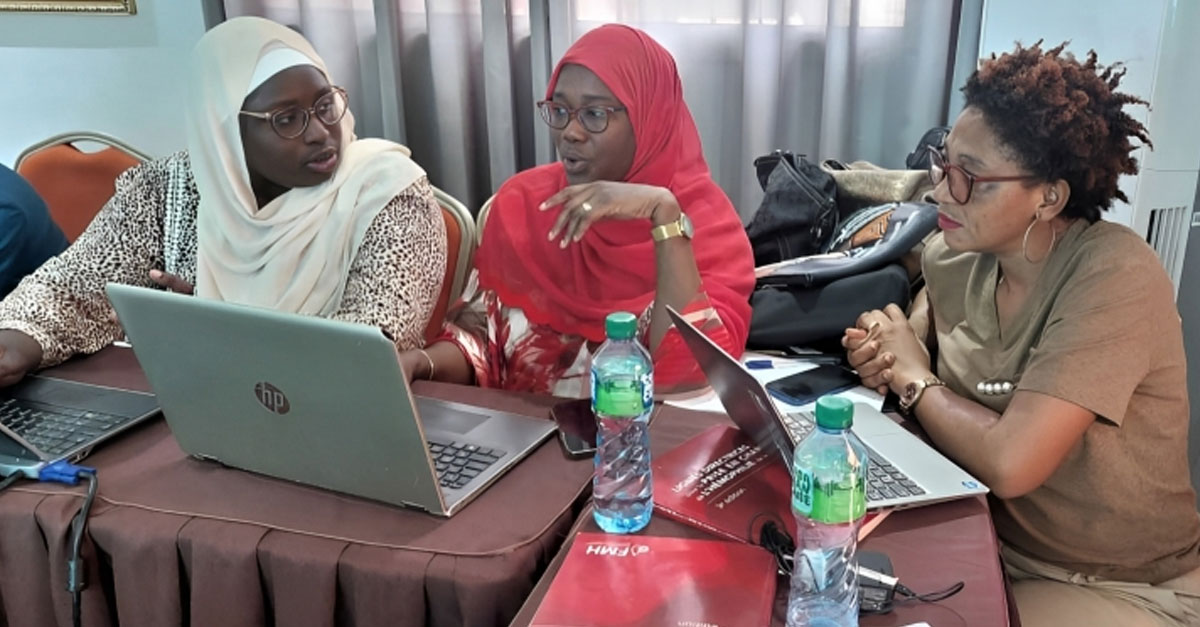In most resource-limited countries like Senegal, access to care for people with hemophilia and other bleeding disorders has been difficult due to many challenges, including lack of funding, capacity, and government commitment. With other competing health priorities, hemophilia and other bleeding disorders are often left on the wayside.
When Senegal joined the WFH Path to Access to Care and Treatment (PACT) Program in 2022, one of the priority areas that the Association Sénégalaise des Hémophiles (ASH) identified was to strengthen the government’s commitment and support for hemophilia and other bleeding disorders, which is also in line with the main goals of the Program.
Prior to the introduction of the PACT Program in Senegal, the engagement of the Republic of Senegal’s Ministry of Health and Social Action with the bleeding disorders community had been gradually improving over the years. However, agreements and commitments made by the Ministry were mostly informal. This changed under the PACT Program. ASH, through its advocacy work, fostered stronger collaboration with the Ministry resulting in the integration of hemophilia into the government’s healthcare strategic plans—highlighted as the second objective in “Le Plan National de Développement Sanitaire” and “Le Plan stratégique de lutte contre les Maladies non-transmissible”.
For ASH and the wider bleeding disorders community, this is significant as it meant that more government resources will now be allocated to hemophilia care, an area that was previously neglected for far too long.
The Ministry of Health understands the importance of patient associations. This is reflected in the sustained support we receive from the directorate of NCDs and the hemophilia treatment centre (HTC)—the Centre National de Transfusion Sanguine (CNTS)—for our important activities. The PACT program provides us with an opportunity to better collaborate as a partner with the Ministry and increase our visibility and leadership in the country.
—Abdoulaye Loum, President of the Association Sénégalaise des Hémophiles (ASH)
One of the key factors that contributed to this outcome was the inclusion of representatives from the Ministry and the CNTS along with ASH in the PACT Program technical working group from the onset of the program. The group was able to provide guidance which respected the government’s vision of health care during the formulation and validation of the PACT National Access Plan in Senegal. This Plan was subsequently integrated into the Senegal Alliance of NCDs’ “Accelerating plan for fighting against NCDs 2023-2025”. The Ministry of Health (MoH) and the CNTS have also helped ASH in many other areas. For example, they supported—with the backing of the President of Senegal—a successful telethon organized this year to raise funds for ASH.

What has been accomplished by the WFH Path to Access to Care and Treatment (PACT) Program in Senegal is encouraging—and the advancements should continue. As the country gets closer to sustainable care, the quality of care—and quality of life—for people with bleeding disorders will improve.
To learn more about the WFH Path to Access to Care and Treatment (PACT) Program, please click here.
The PACT Program is supported by funding from Roche and Sanofi, our visionary partners; CSL Behring and Pfizer, our leadership partners; and Bayer, Biotest and Grifols, our collaborating partners.












